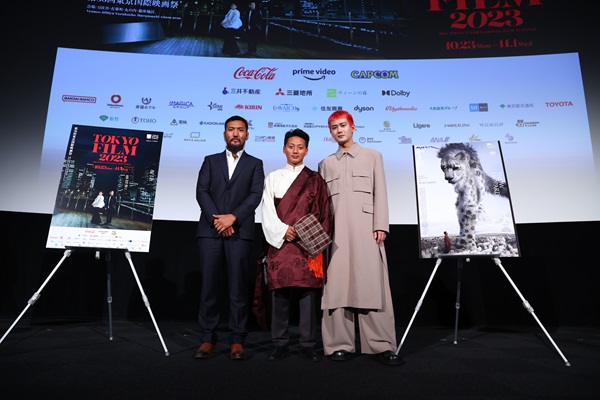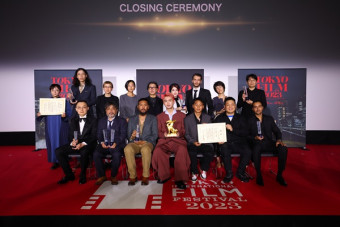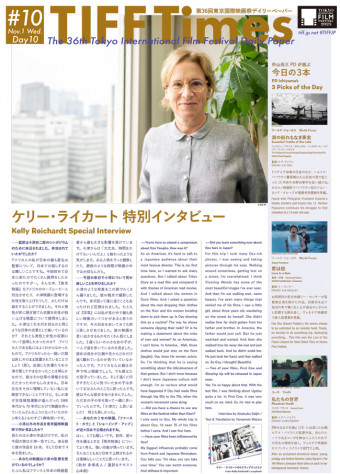
During the Q&A following the October 29 screening of Snow Leopard in the Competition section of the 36th Tokyo International Film Festival, moderator and TIFF Programming Director Ichiyama Shozo mentioned that the film’s director, Pema Tseden, had passed away in May after he’d finished shooting what will be his final film, which will be completed by his son and released next year. In the meantime, Ichiyama wanted to include Pema’s latest film, which has already been shown at the Venice and Toronto film festivals, at this year’s TIFF as a tribute to the beloved pioneer of the Tibetan New Wave.
Snow Leopard is a fitting cap to Pema’s career, an unsentimental, often raucous study of how the rules of the modern state, even when they carry the best of intentions, can encroach on the lives of people who live more traditionally. Set in Qinghai on the Tibetan plateau, the film’s framing device is a TV crew who hears that a rare snow leopard has been captured by a sheep herder. The crew heads to the man’s house with the help of his younger brother, a monk-in-training who has become semi-famous on the internet for his nature photography, particularly of snow leopards.
When the crew arrives, however, the sheep herder is about to kill the snow leopard, which is now trapped in the sheep pen, because it has killed 9 of his rams. Since snow leopards are a protected species in China, killing one is illegal, so the sheep herder demands that the local authorities compensate him for his loss. As the day progresses and everyone waits for the authorities to arrive, the sheep herder’s anger just intensifies.
Some of Pema Tseden’s regular actors had accompanied the film to Tokyo, and they were asked to share their memories of the shoot with the audience. The single-named Jinpa, who plays the hot-headed sheep herder, described to the audience how Snow Leopard was made during much of 2022. “After receiving the script, I saw how wonderful it was,” he said, “and made suggestions about the way these people live.” The director was famous for showing how Tibetans really live their lives, and while Snow Leopard has some dream-like passages when it focuses on the cat itself, the scenes about the life of the sheep herder and his family are more straightforward.
Certainly one of the most compelling aspects of the film is how different in bearing and attitude the Tibetan-speaking characters are from the Mandarin-speaking characters. In one crucial scene, a local official has to act as interpreter between the sheep herder and the police, a conversation that eventually leads to a fist fight.
Tseten Tashi, who plays Jinpa’s younger brother, “the snow leopard monk,” in the film, talked about how much he had enjoyed wearing traditional clothing for the shoot. “Actually, there was a time when I wanted to become a monk myself,” the actor admitted. “But I was an only son and couldn’t leave my parents.” In the film, the monk has several surreal, out-of-body reveries that Pema Tseden renders in silver-tinged black-and-white, as the monk imagines himself saving the snow leopard, which in turn saves him after he is stranded in the mountains during a religious pilgrimage. The sequences are drawn from a Tibetan story that is cited in the final credits.
Whether in luminous monochrome or in living color, the snow leopard has its own recognizable personality and is a central character in the film—despite being created with computer graphics, with a sprinkling of cinematic magic.
Q&A Session: Competition
Snow Leopard
Guests: Jinpa (Actor), Xiong Ziqi (Actor), Tseten Tashi (Actor)


















































